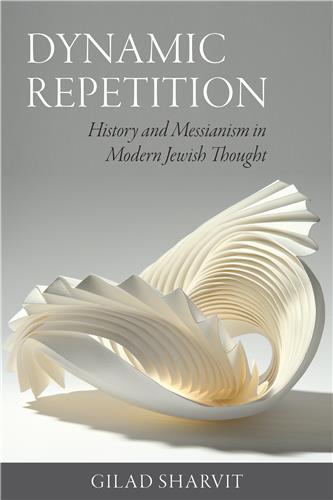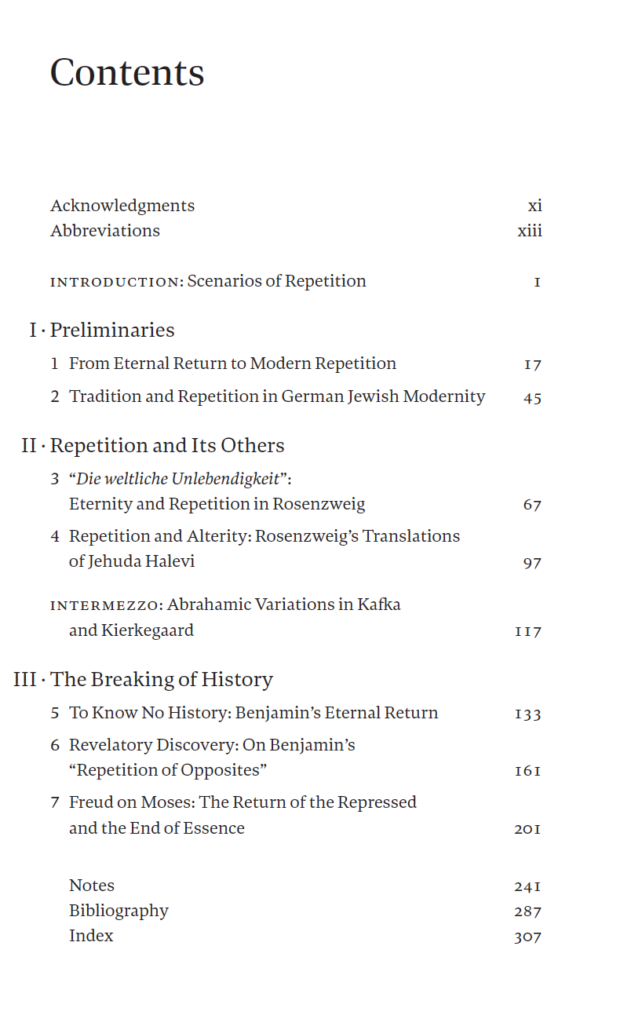The slightest gap separates the repetition of the same and repetition with a difference, but through that opening messianic redemption may somehow find its way. Or so suggested four of the most powerful Jewish thinkers of the 20th century, Rosenzweig, Kafka, Benjamin, and Freud, according to Gilad Sharvit’s arresting new reading of their legacy. Analytically rigorous, boldly imaginative, and lucidly written, Dynamic Repetition demonstrates how that most improbable of hopes is itself a revenant that refuses to die.





